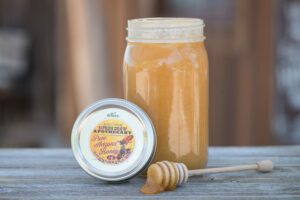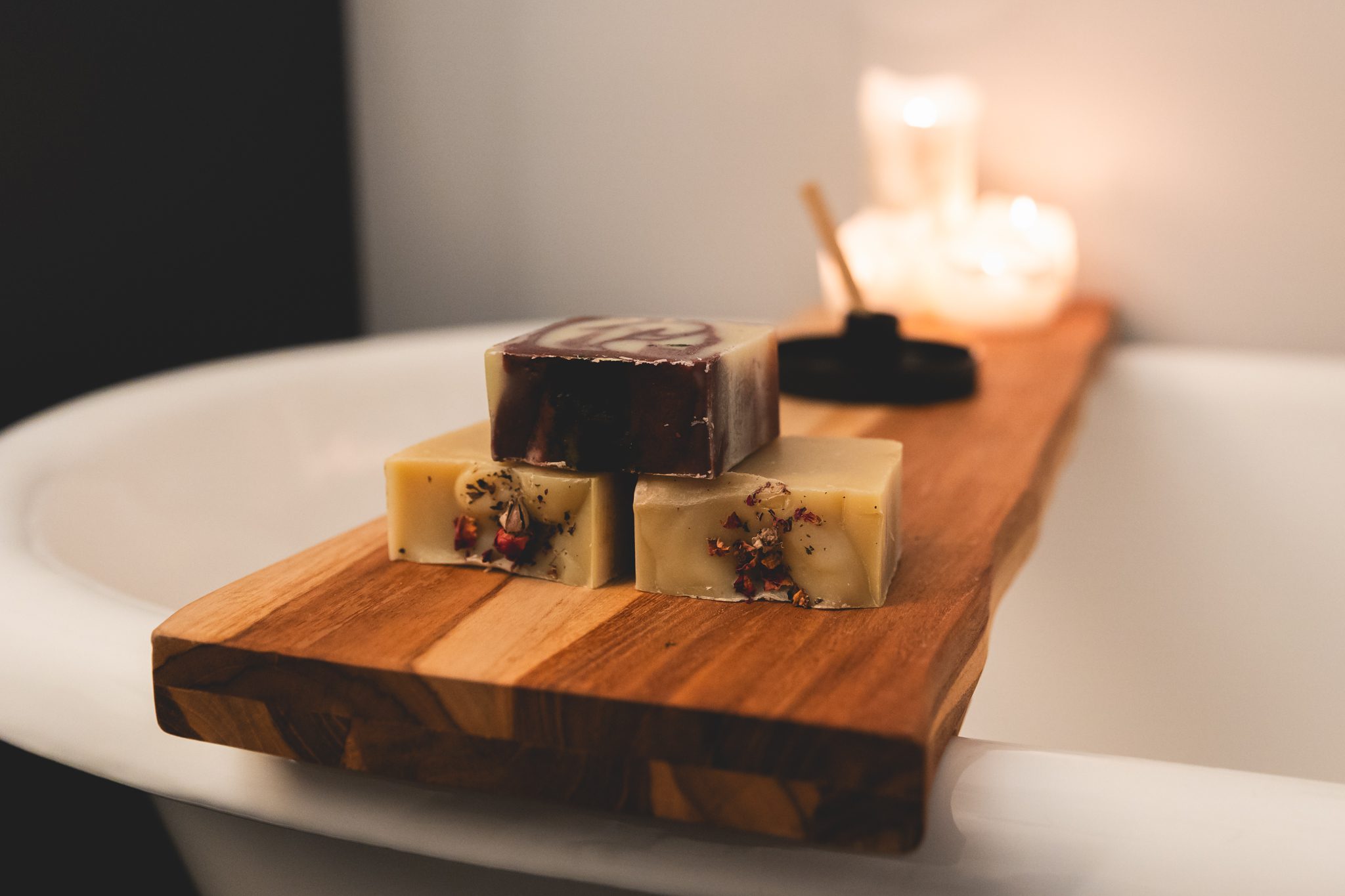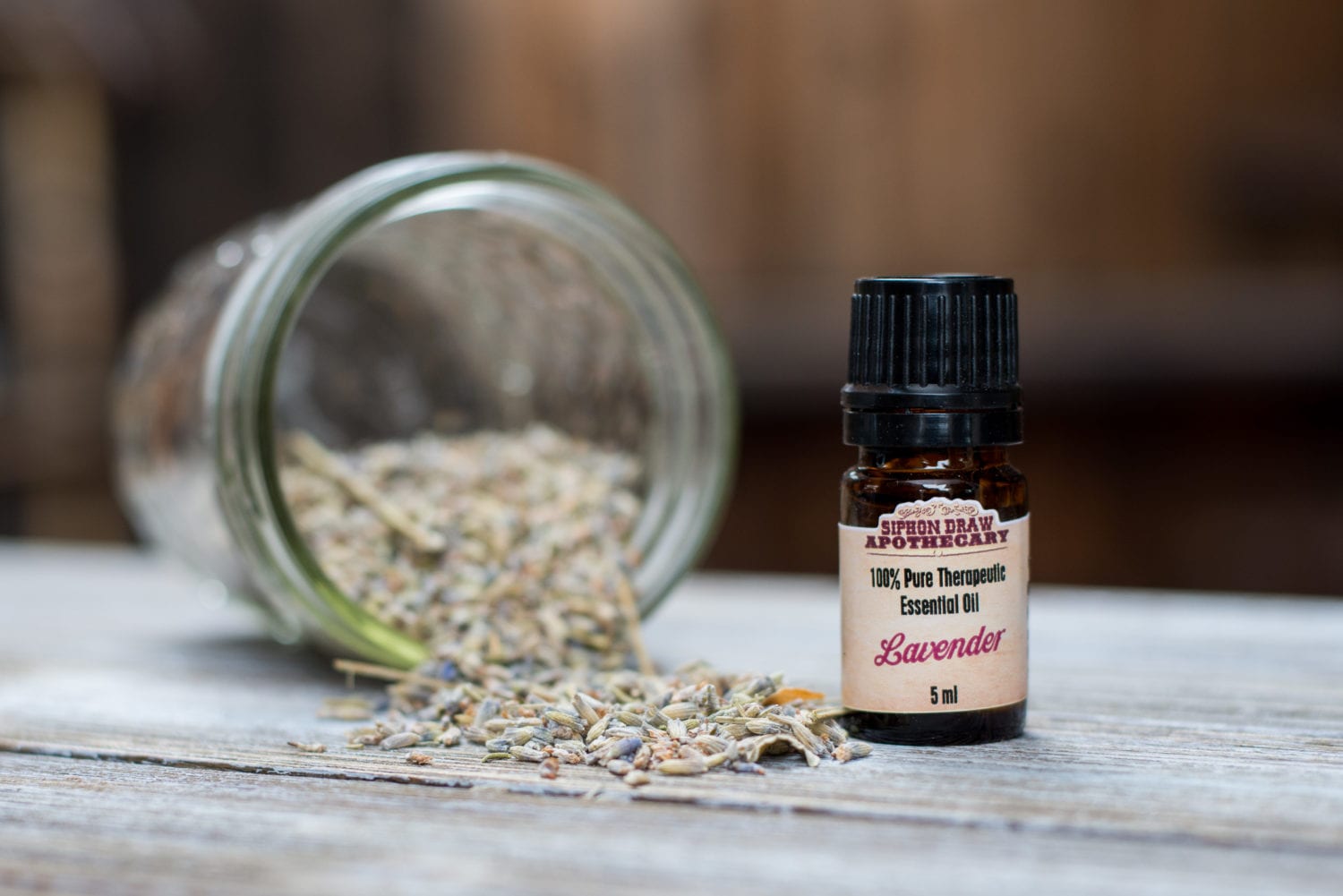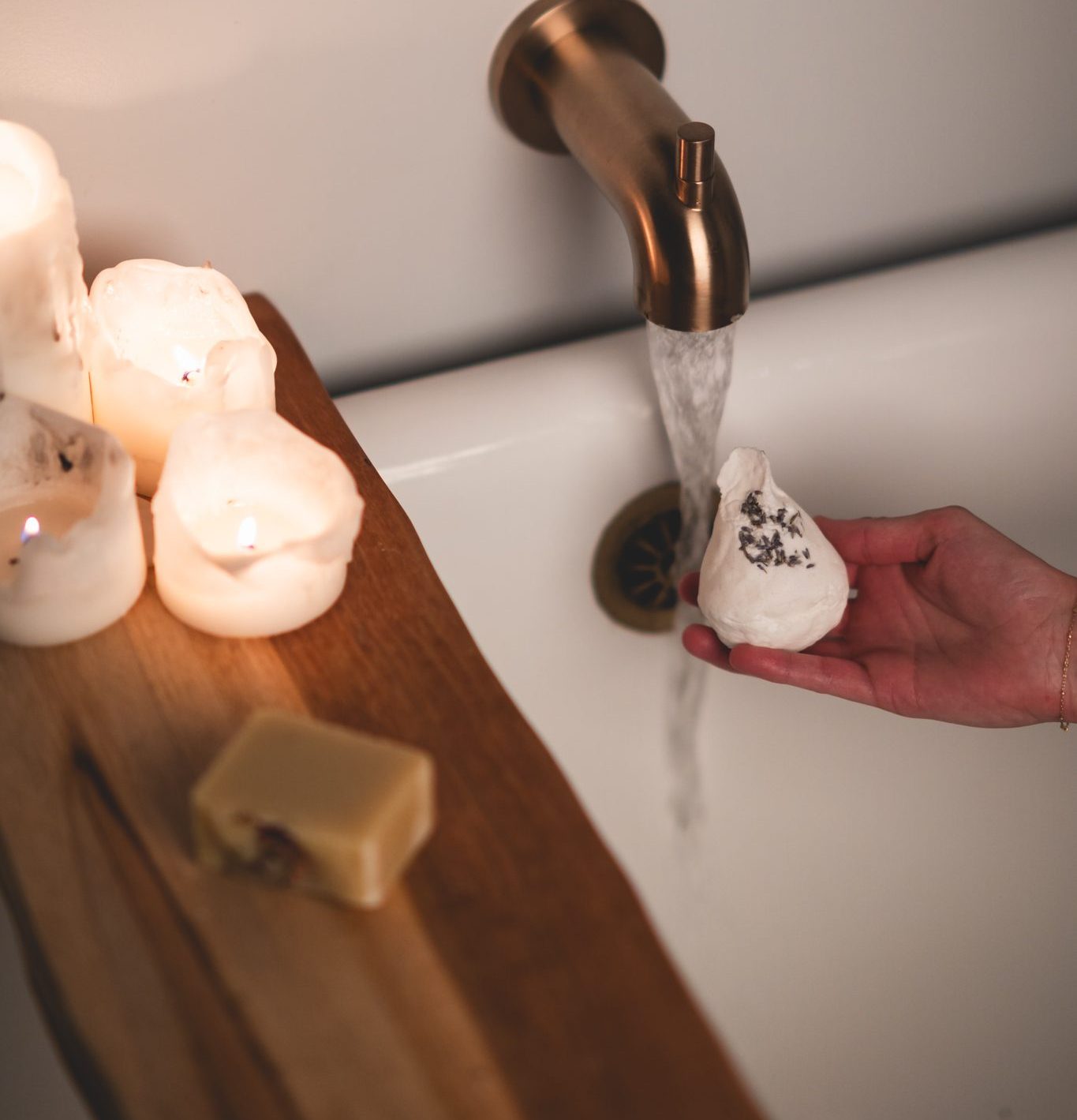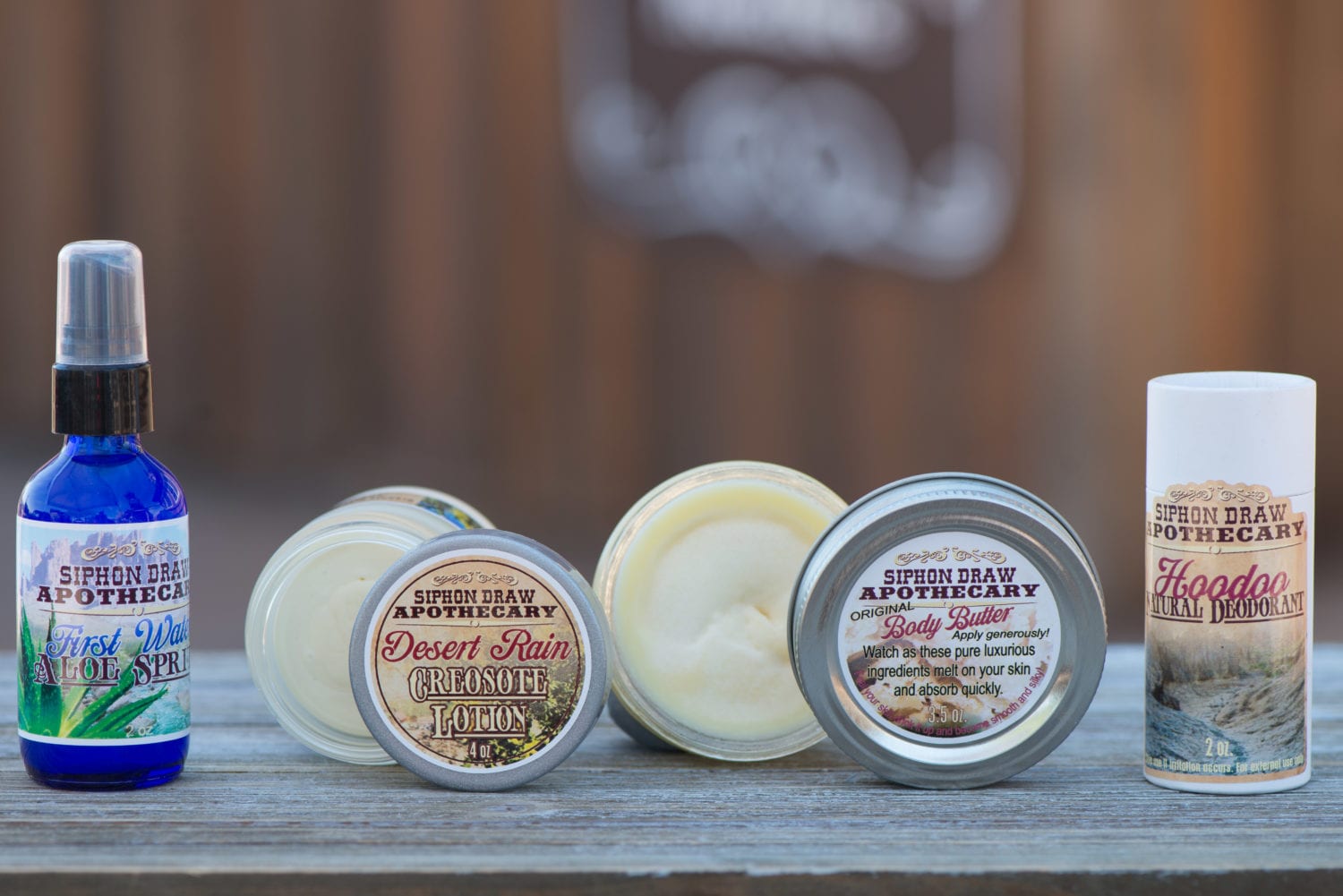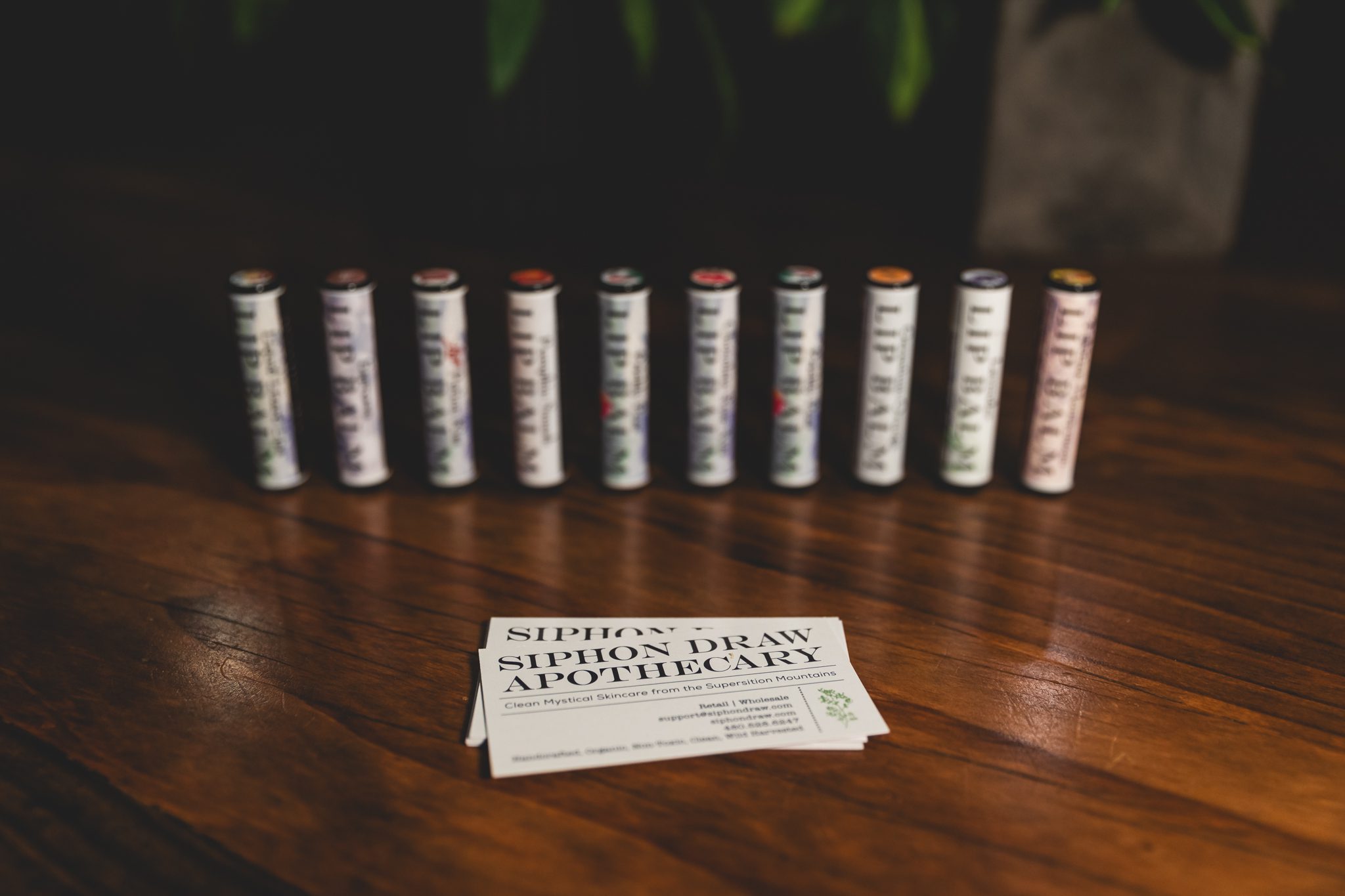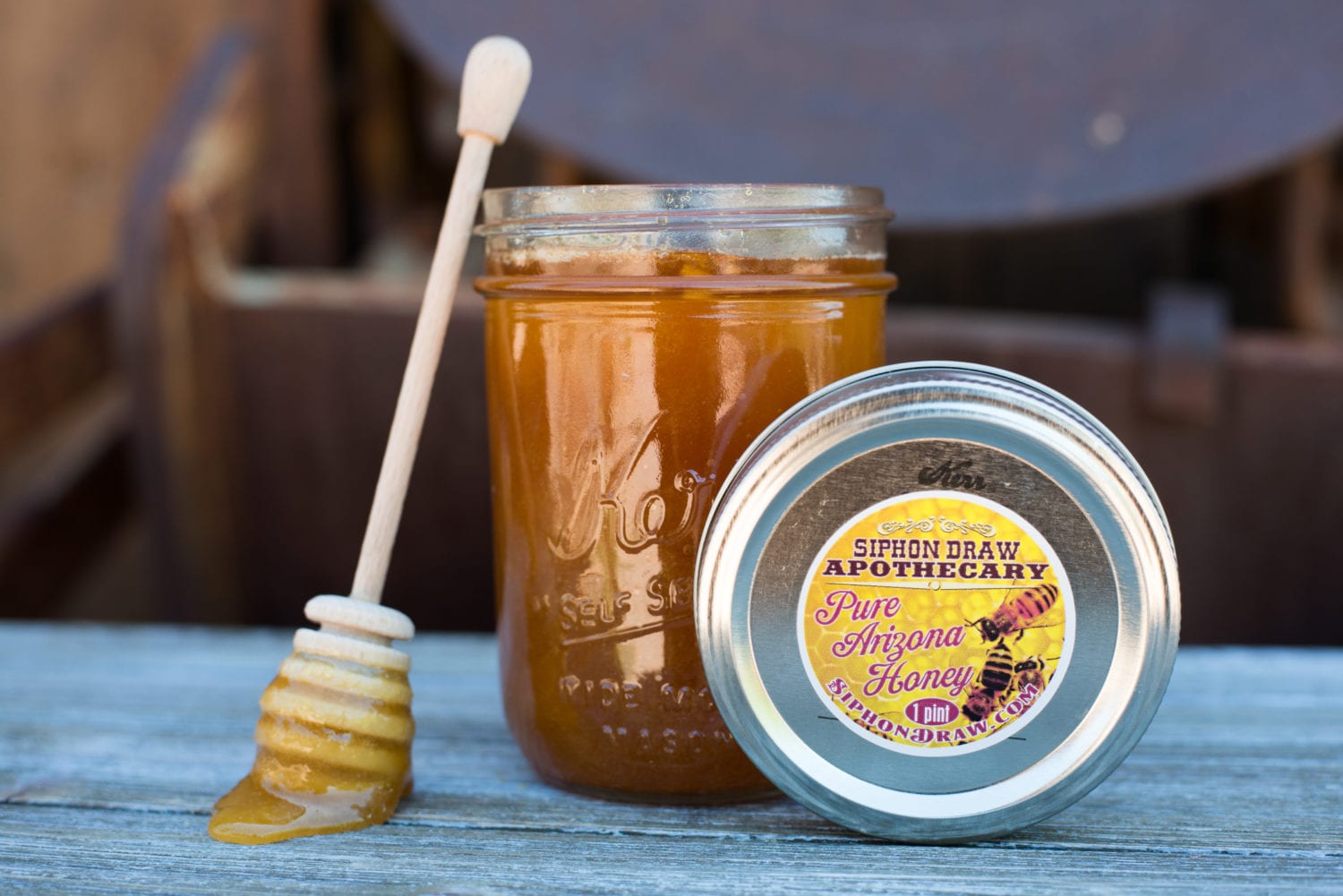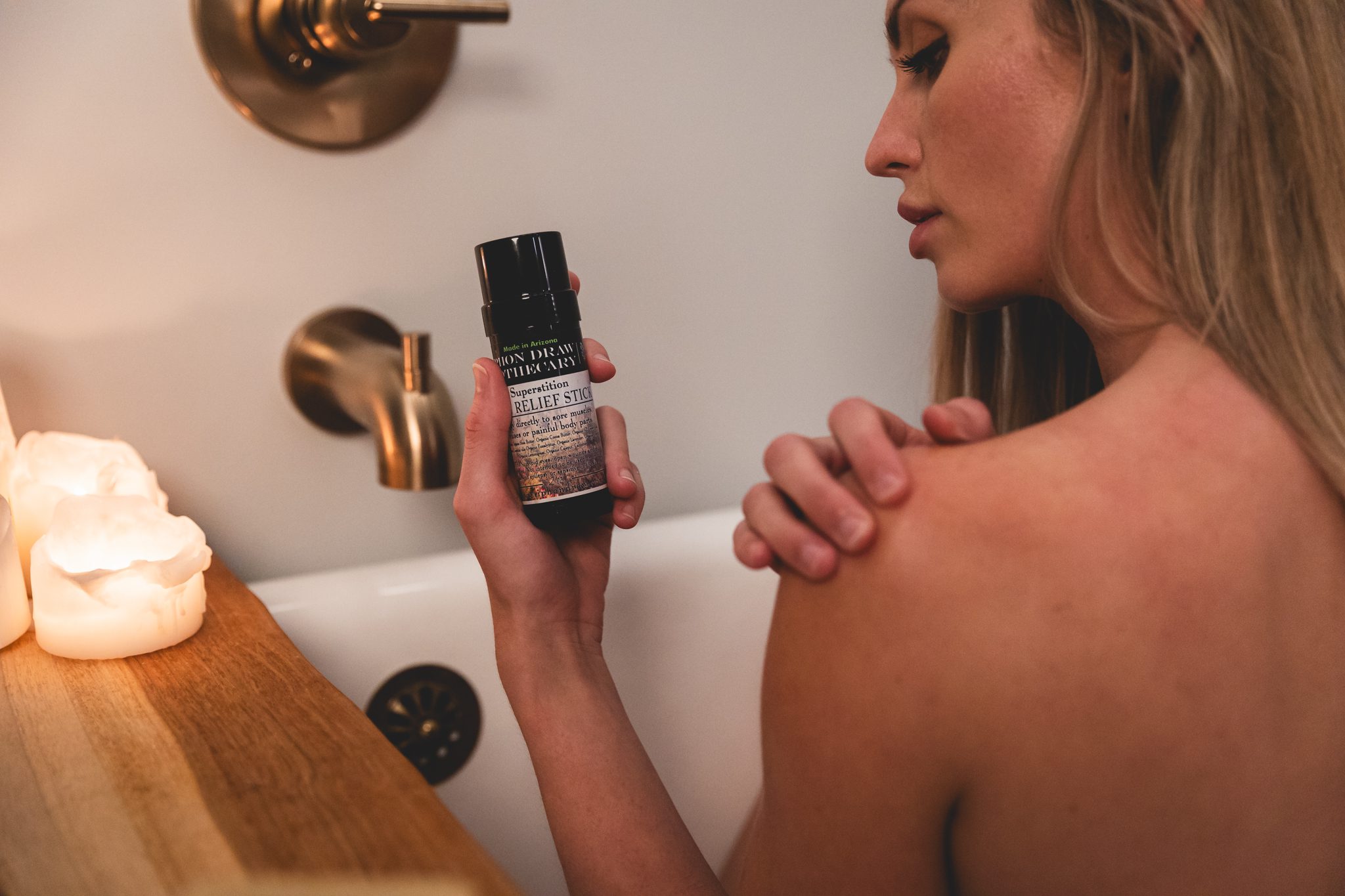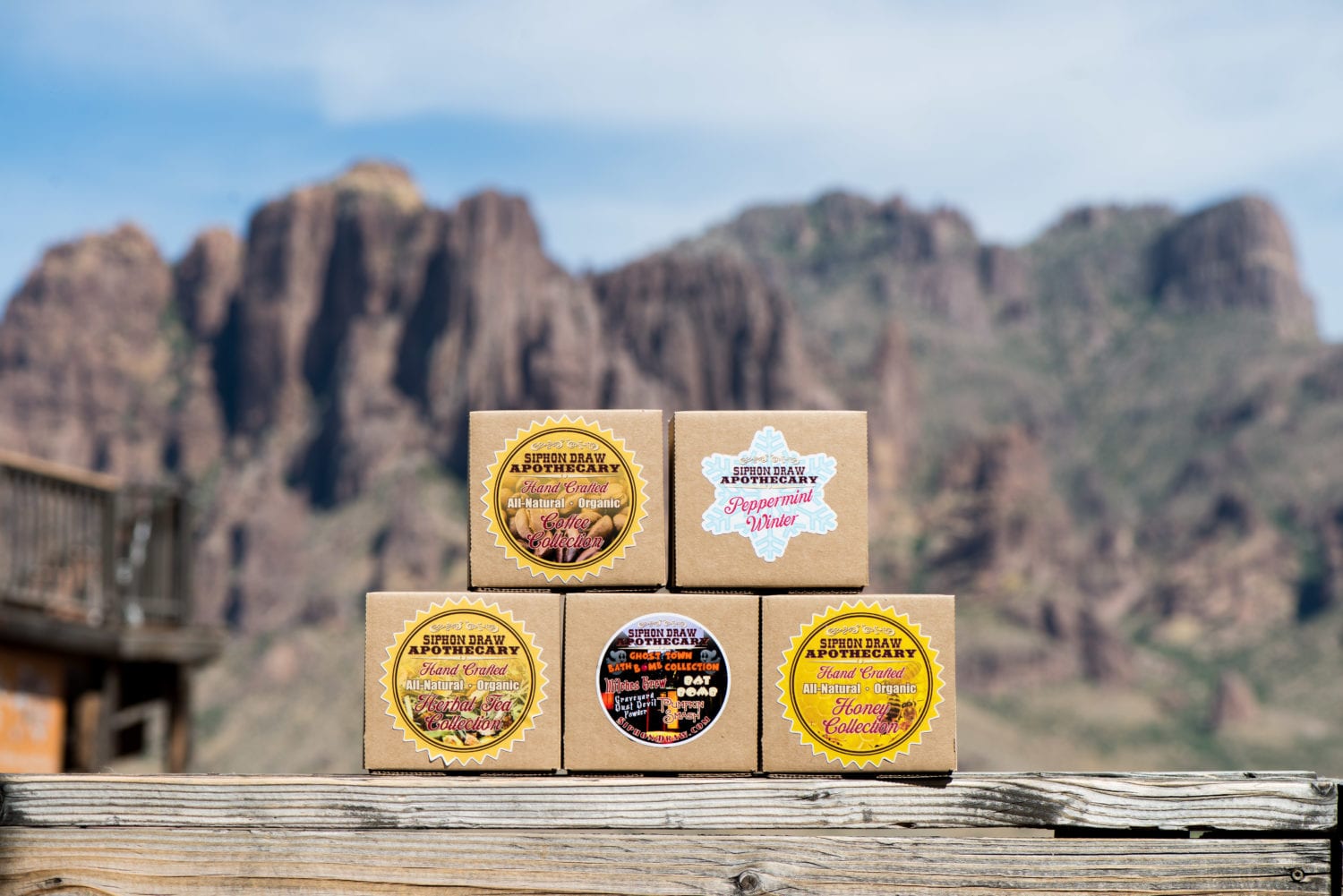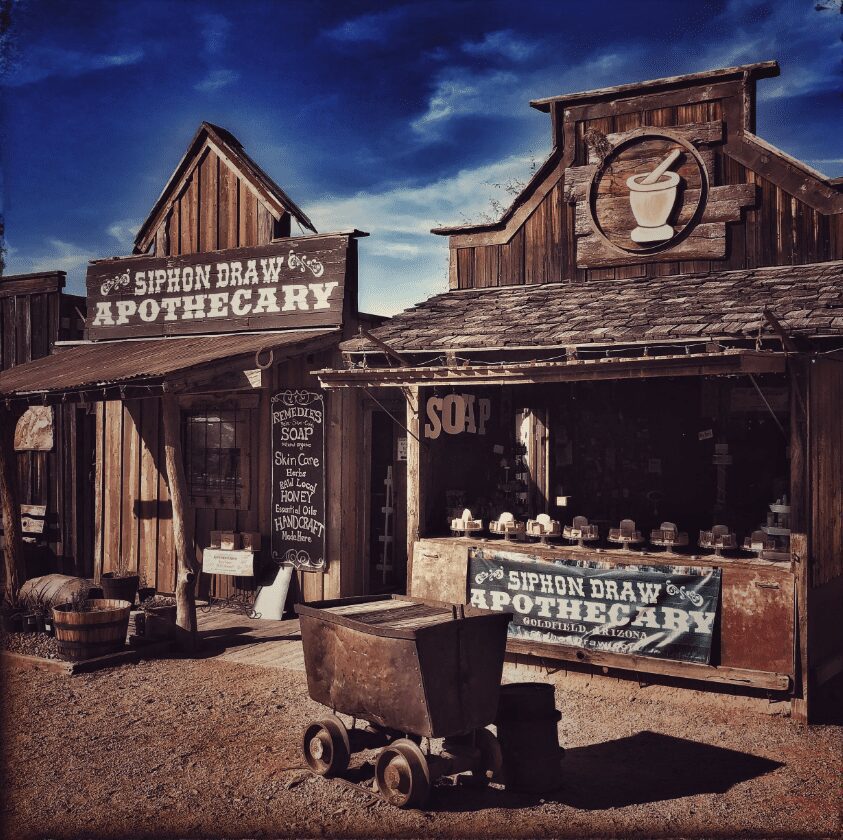Meet Our Beekeeper Colleen Sinclair!
We interviewed Colleen Sinclair, owner of Siphon Draw Apothecary, Holistic Nutritionist, & Beekeeper about her beekeeping adventures and why she does this important work that supports healthy bee populations. She provides honey to people all over the world and people just can’t seem to get enough! There is truly something special about this honey that comes from the Superstition Wilderness in the Arizona Desert.
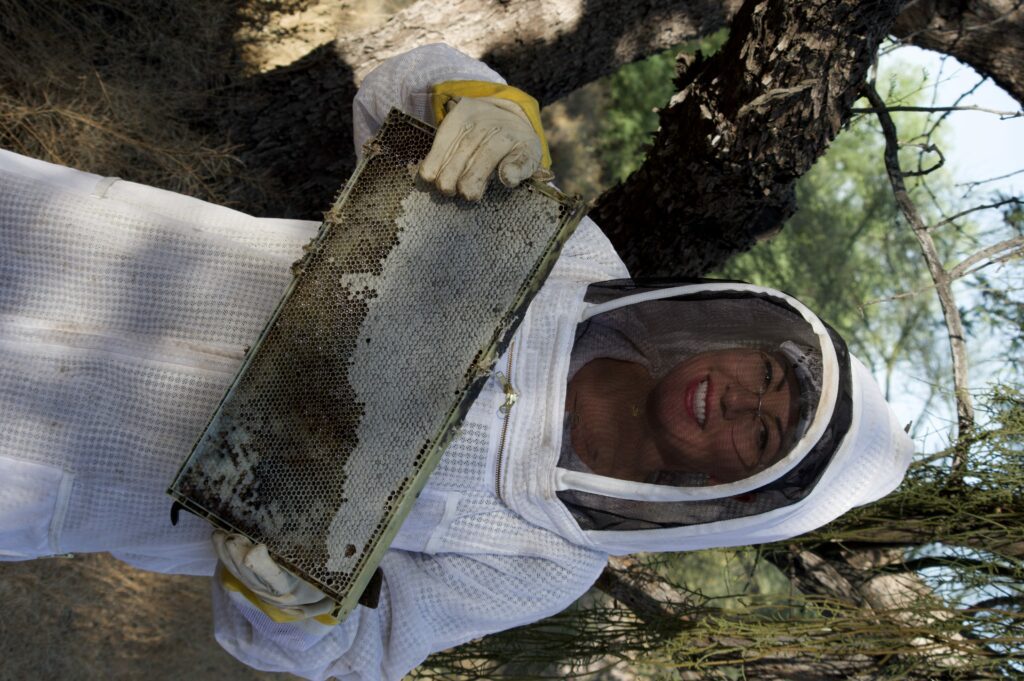
Q: How did you get into beekeeping?
A: I was lucky enough to have some beekeeper friends who gave me delicious honey, and then when I learned how beneficial raw pure local honey was to your health, it was in alignment with what I do and what I am passionate about. They were willing to let me come with them when they were working with bees and it progressed from there. Sourcing my skincare ingredients is very important to me, where they come from, the purity, the quality and ethical sourcing. Keeping people healthy and the Earth healthy is really important, so knowing where my honey was coming from was important, and I realized I had the opportunity to do it myself. I am the kind of do-it-yourself person… I can’t do everything, but the reason I chose beekeeping is because it is therapeutic for me, its relaxing.
Q: We know you love using honey and beeswax in your organic skincare products…What does honey have to offer our skin and health?
A: I learned that honey is one of the first ever skincare ingredients. It was used for wound healing and other skincare remedies, and besides things like infections and wounds, it is really great for keeping the skin supple and smooth. It is a very effective, natural ingredient. I like the skincare I create to not only offer something that looks and feels good but also addresses a variety of skin issues. Honey on its own, will last forever, it doesn’t have an expiration date and is known to be antimicrobial, so it offers those same benefits when applied to the skin. It will help to keep the skin’s flora balanced and keep it free from pathogens that might cause problems. Honey is a humectant, which helps to retain moisture on the skin. It creates a barrier but allows the skin to breathe. That makes it a great topical for people with acne and inflammation. It also helps with evening out skin tone.
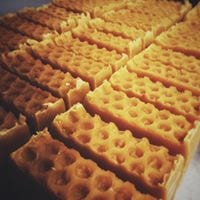
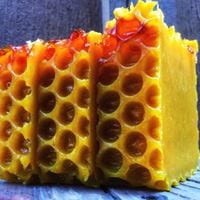
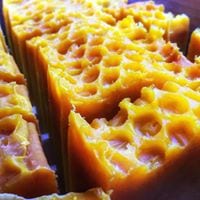
Bee Happy Honey Soap-Tahitian Honeymoon Soap-Safeword Mead Soap
Q: A lot of people have a fear of bees…What motivates you to work with them and how do you feel when they are surrounding you?
A: I have always been terrified of bees. I’ve got some ridiculous stories of me trying to get away from bees, but when I realized how important bees were and how delicious honey is and how valuable it is to creating my skincare, I decided I needed to learn more about bees and realized that if someone is doing it, it can’t be impossible! How are they doing it and not dying?
What I learned is first, is that you absolutely have to respect bees, because they can hurt you, but when you understand them and respect them and work with them calmly it is possible to work with bees and that is how we get honey. So the first thing I had to do was, be brave, and totally trust my beekeeper friends. One thing they taught me is the bee’s natural predator is a bear, which is why beekeeper suits are white, because the bees don’t see that as a threat. When their natural predator, bears, come after their honey, the bees go for inside the mouth, because it is difficult for bees to sting them through their fur and thick coat, so the mouth is an easier target for them. This causes them to be attracted to carbon dioxide coming out of the mouth. So when you work with bees, it is very important to relax, because if you are huffing and puffing a lot, and stressing out, and breathing heavy, the bees are going to be attracted to the carbon dioxide coming out of your mouth. It attracts them. It’s like a signal. So knowing that, made me come to terms with how I need to come into the beekeeping relaxed and calm and focused on what I’m doing and not think about the fear. So naturally now, when I do any beekeeping I am basically in a meditative state.
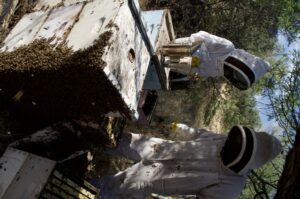
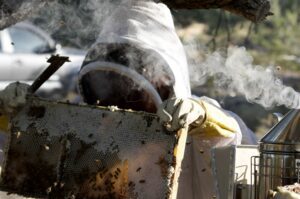
Q: Do beekeeping practices ever harm the bees? Do you consider yourself an ethical beekeeper?
A: I do consider myself an ethical beekeeper. One reason is I never move my bees, they stay in the same place all the time. Many beekeepers move their bees to pollinate genetically modified crops that are covered in pesticides that kill them. That is a debatable topic, because the people that expose them to these chemicals often deny that it is happening. Just moving them stresses the bees, and with the move, some bees will die.
As far as collecting the honey, I always leave plenty of honey for them to get through their seasons. The bees that I have right now, a lot of them are hives that were removed from a home or from somewhere they would have otherwise been exterminated. But I moved them to a beautiful spot at the base of the superstition mountains. They are in a location that is away from people, so they have peace and quiet, with an abundance of plants for them to pollinate. I don’t treat the bees with any medications or have to supplement their nutrition because where they are at, they have everything they need.
Q: Do you have any advice for beginning beekeepers?
A: I got really lucky to learn from beekeepers who had been beekeeping for over 20 years. So its a great idea to join groups with or get to know other beekeepers to ask questions. Don’t rush into it, take your time. When you are actually working with them you need to continue to relax and take your time.
As far as equipment goes, investing in a good beekeeping suit (and being sure to put it on properly) is really important. Be aware that you are going to get stung, and it makes the job not as pleasant when you are getting stung. So if you have a really great suit, that makes it a much more enjoyable experience.
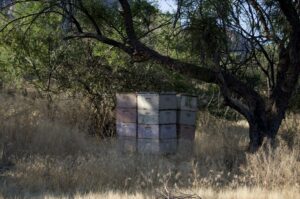
Q: What is the hardest part of being a beekeeper?
A: One of the hardest parts of being a beekeeper is for me personally is that I don’t want to go out to my hives and work with them alone. It’s just not something I am comfortable with yet so I need to have a partner to go with. It’s hard work, it’s not easy work. If you have a lot of bees and you’re working with a lot of bees it’s a messy, dirty job, and in Arizona it’s really hot, so you’re working in the heat with bees all over you and it can easily get you stressful if you don’t remain calm and take your time. It challenges your ability to handle stress.
As somebody that uses it for skincare and sells it to people all over the world, it’s hard to keep up with demand because the bees only produce what they produce. So working with other local Arizona beekeepers to support each other and help supply to customers has been vital to my business.
Q: There are so many things you can do with Honey, what are your favorite ways to use it?
A: Eat it. Eat it straight. As a nutritionist, I love to use it in different drinks and desserts. For skincare I love how it addresses so many skin ailments. Honey has been a solution for so many things that I have been trying to create.
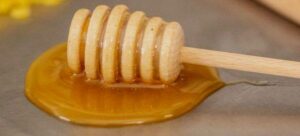
Q: How is the Honey from your hives different than what people can buy at the grocery store?
A: Well it’s raw, it’s pure, and if you’re from Arizona it’s local. A lot of times the honey at the store has been heated to pasteurize it, which destroys the benefits of the honey. If someone is looking to use honey for their allergies, it’s not going to work, unless they have pure raw local honey that has not been heated. Even worse with some store-bought honey is it’s sometimes mixed with other ingredients so they can extend their profit margins. A few things it can be mixed with are corn syrup or rice syrup. For someone looking to use honey therapeutically, if they use that honey, not only are they not going to get the therapeutic results, the other ingredients may cause their issues to worsen.
Store-bought honey is not necessarily supporting an ethical beekeeper either. I would recommend people purchase their honey from a beekeeper directly, and also farmer’s markets are a good place to find honey. If you do buy it from a retailer, be prepared with knowing the right questions to ask to make sure it was sourced from a beekeeper practicing ethical beekeeping.
Q: Where can people buy your special Arizona Desert Honey?
A: We sell the honey collected from my hives right down the road from where the hives are located, at Siphon Draw Apothecary at the Goldfield Ghost Town. It’s a great place to visit and is a historic wild west town. At the town you can even see a lot of the desert plants that my bees are collecting their honey from. This is where we make all of our skincare products and offer herbal teas, supplements, and other healing products. We do offer free samples of the honey there for people visiting.
If you can’t make it out to the apothecary, you can always order my honey from our website. We ship all over the world, and we offer free shipping on orders over $25! You will love it, and it’s so good for you! Click here to order!
